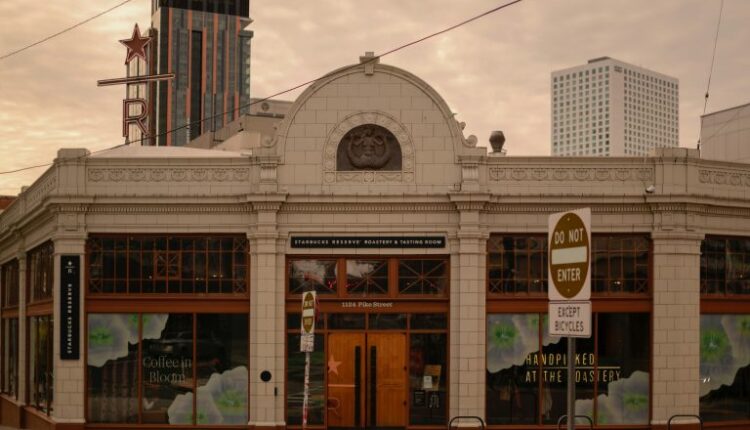Coffee Mecca Seattle Faces Price Spikes, But Besieged Coffee Shop Owners Still Call It “Better Than Uber” – CoffeeTalk
Coffee prices have been on the rise, causing trouble for businesses and cost-sensitive customers. The American price tag for jitter juice surged about 20% in August year over year, driven by an ongoing supply chain crunch worsened by shortages of raw coffee beans around the world. This year, President Donald Trump’s tariffs also brought another costly challenge for a market that imports 99% of its product.
Navigating these stumbling blocks has forced coffee purveyors to learn “to be agile,” said Peter Mark Ingalls, owner of Seattle-based coffee roaster Kuma Coffee. Consumers are adjusting their habits to keep up with the changing market.
The National Coffee Association, the industry’s trade group, reports that adults in the U.S. drink around 490 million cups of coffee on a daily basis. To meet the nationwide need for caffeine, much of the supply has to be imported. The U.S. Agriculture Department’s Economic Research Service said the country purchased about 80% of its unroasted coffee in 2023 from Latin America, with 35% from Brazil and 27% from Colombia.
Brazil reigns supreme as the world’s top coffee producer, accounting for 37% of 2024-25 global production. Adverse weather conditions and tariffs have hit Brazil, Vietnam, and Colombia, the top three coffee bean producers. The U.S. ranks No. 38 in coffee production, with tropical climates being ideal for growing coffee, so only Hawai‘i, Puerto Rico, and California are suitable for domestic production.
Increased demand worldwide, combined with smaller coffee harvests in recent years, are affecting coffee prices, the National Coffee Association said. Reduced yields are tied in part to weather conditions like droughts and frosts. Trump’s deluge of tariffs is hitting major coffee exporters, particularly Brazil, which has been rocked by a 50% duty.
Some relief could be on the way, after Trump issued an executive order earlier this month detailing that tariffs on products that can’t be “naturally produced in sufficient quantities in the United States to satisfy domestic demand” could be modified in the future. Local businesses are taking different approaches to the headwinds, but some are better positioned than others.
Coffee giant Starbucks is keeping its eyes on market fluctuations, stating that both the tariff environment and coffee prices continue to be dynamic. The company sources its coffee from more than 450,000 farmers in 30 global markets, including Brazil, and its coffee purchasing practices help reduce price volatility and ensure a healthy supply of green coffee, or raw coffee beans.
Emanuele Bizzarri, co-owner of Caffè Umbria, has been in the coffee business since the 1980s and is currently experiencing unprecedented prices on the C market, or coffee futures market. The company has expanded across the country, with four cafes in Seattle, three in Portland, two in Chicago, and one in Miami. Caffè Umbria mainly imports coffee from Brazil, Colombia, Guatemala, Kenya, and Papua New Guinea.
The most significant changes hit the industry after the COVID pandemic, including congestion, delays, and a lack of food-grade containers. Tariffs, often set a year or two in advance, are subject to changing duties, making it difficult to budget. The Trump administration’s tariffs on most coffee-producing countries range from 10% to 25%, but the 50% tariff on Brazil is especially hurtful to coffee purveyors.
The coffee industry is also feeling the squeeze from weather events, such as reports of frost in Brazil. Caffè Umbria raised prices earlier this year, but it didn’t implement dramatic spikes. Bizzarri concluded that the current situation is not a good time to be in the coffee business.
Mehmet Gultekin, owner of The Seattle Grind, has faced high operation costs in Seattle due to high real estate, labor, minimum wage, and tips rules. He is figuring out how much his business can absorb financially and how much to pass on to his patrons. As a consumer, Ingalls is experiencing sticker shock and doesn’t want to worsen the problem.
Mehmet Gultekin, owner of The Seattle Grind, believes that some elements fall in his favor, such as his shop being similar to a kiosk, which allows him to rent less than the standard. He also caters to tourists during the warmer months and employees of the Bill & Melinda Gates Foundation, the Space Needle, and Seattle Center in the winter.
Despite the high costs of running a coffee shop in Seattle, Gultekin prefers the coffee industry to other options, calling it “better than Uber.”
Read More @ Seattle Times
Source: Coffee Talk



